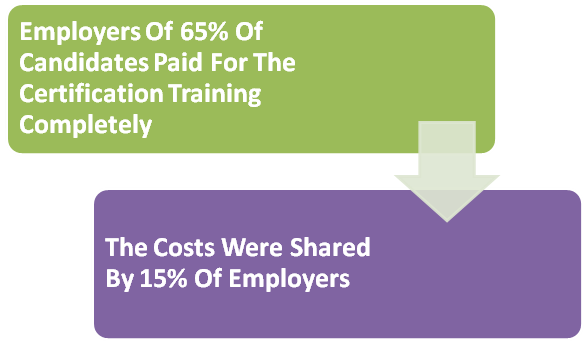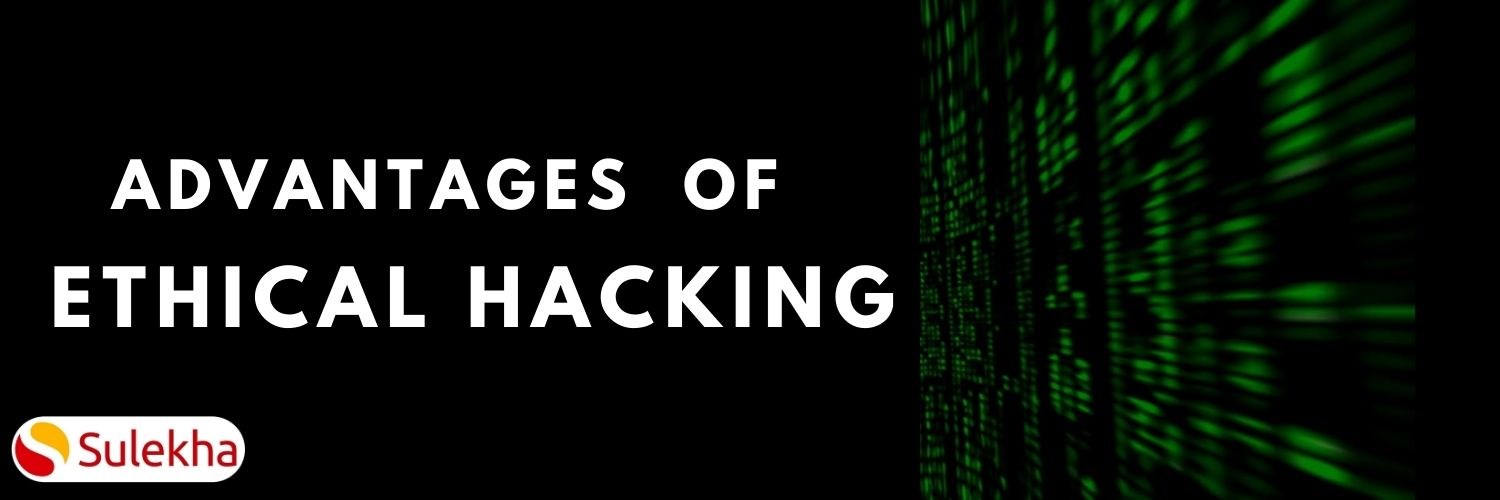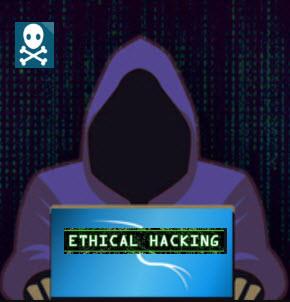How to Boost Cyber Security As An Ethical Hacker
Cyber security is protecting the Information systems from damage or theft of the software, hardware and to the sensitive information on them. It involves the controlling of the access to the hardware and protecting the system from harm due to code or data injection, network access or malpractice by the operators. In the past few years, there has been an appreciable increase in the number of Cyber crimes, such as seizing and stealing sensitive data, abusive emails, password attacks and hacking email accounts.
This has led to the demand of ethical hackers, who are popularly called white hat or white hat hackers. He hacks to strengthen system, with legal permission and makes them penetration proof. He is a computer or network expert, who is hired by organizations to detect vulnerabilities in an IT system and secure it.
This has led to the demand of ethical hackers, who are popularly called white hat or white hat hackers. He hacks to strengthen system, with legal permission and makes them penetration proof. He is a computer or network expert, who is hired by organizations to detect vulnerabilities in an IT system and secure it.
Acclaimed organizations like Wipro, IBM hire ethical hackers to protect their system from malicious hackers. If you are interested in networking and programming, you can make a lucrative career as a successful white hat by doing some of the popular certification courses on ethical hacking.
The Basics:
The certifications for Cyber security are available for forensic to ethical hacking. They are offered by the accrediting independent organizations, such as, EC-Council, CompTIA, ISACA GIAC, and (ISC) 2.
These organizations divide the programs into categories, like entry, intermediate and the expert level.
- The entry-level certifications offer knowledge on the basics, such as best practices, foundation principles, latest technologies and the tools etc.
- Intermediate and expert-level certifications assume that the candidates have substantial job experience and in-depth knowledge of the subject.
Regardless of the Subject or Level of Experience:
- The IT security certifications can be used across organizations and jobs.
- The process of acquiring credentials usually comprises of final exam and training.
- The renewal period of these certifications are every 3-4 years.
- For reaccreditation, continuing the education credits is essential along with the capability of passing the present exam.
Costs and Commitment:
It is worth every penny invested in acquiring the certifications which are right for the career. The certifications can be both expensive and time consuming. An entry level credential takes about 3-9 months and costs $300-$600. Many employers and Universities foot all these bills.
According To the 2014 SANS Survey of Cyber security Trends:

Which certifications to choose:
A) Entry-level Certifications:
- CompTIA Security+:
CompTIA offers a couple of vendor-neutral certifications for the IT industry, including all the 16 certification exams in the cloud, servers, Linux, networking, security etc.
- GSEC: GIAC Security Essentials Certification:
The GSE certification is highly sought after in the IT Security industry. It assesses whether the holder of the certificate has mastered the skills needed by the top consultants in security and the individual practitioners. No particular training is required for the GIAC certifications. Only the practical experience counts.
- SSCP: Systems Security Certified Practitioner:
The SSCP points out the ability of a practitioner to handle the responsibilities and operational demands of the security practitioners, including the security testing, authentication, intrusion ,prevention, and recovery, incident response, countermeasures, attacks etc.
B) Popular industry certifications include:
- CISSP: Certified Information Systems Security Professional:
It is a high-level certificate that concentrates on management and security policy. It is the mst sought-after certification in this field.
- CISA: Certified Information Systems Auditor:
It is designed for the professionals who control, monitor audit, and assess business systems and information technology.
- CISM: Certified Information Security Manager:
This certification is designed for the managerial positions.
- CEH: Certified Ethical Hacker:
This certification is of high demand among the penetration testers and the white hat hackers. You can get a high paying job by doing this certified ethical hacking course.
- OSCP: Offensive Security Certified Professional:
This certification is for the penetration testers and involves a 24-hour certification exam.
Cyber security is a growing concern in organizations due to the tremendous rise in cyber crimes that have taken place in the recent years. This has boosted the demand of ethical hackers, which is a lucrative career now. Take your career in the right direction with a ethical hacking training course.
Find a course provider to learn Ethical Hacking
Java training | J2EE training | J2EE Jboss training | Apache JMeter trainingTake the next step towards your professional goals in Ethical Hacking
Don't hesitate to talk with our course advisor right now
Receive a call
Contact NowMake a call
+1-732-338-7323Related blogs on Ethical Hacking to learn more

Top 15 Ethical Hacking Tools to Use in 2024
In top 20 Ethical Hacking Tools and Software, we have discussed What is Ethical hacking, what are Ethical Hacking Tools and Software and the importance of Hacking Tools.

What are the Advantages of Ethical Hacking?
Ethical hacking is a proliferating career path among various rapidly evolving technologies in the IT and non-IT industries.

A glance into the world of Ethical hacking
A hacker is an individual or a group of people who steals the private information of a person or an organization and gains advantages from it from their digital device or network using various hacking tools. Majorly there are three types of hackers:

What Are Most Sought-After Certifications For Ethical Hackers?
One of the high demand jobs in the IT field is that of an ethical hacker, who intentionally penetrates into the systems and networks to detect and fix vulnerabilities.The term hacking of computers, carries with it a negative impact. It just brings to

The Importance of Penetration Testing and What it takes to be a Penetration Tester
“What is penetration testing?” is a commonly asked question. Penetration testing is a complex process that involves testing applications for security vulnerabilities. Easier said than done, penetration testing has become a major part of ethical hacki

A Comprehensive Guide To Become A Successful White Hat Hacker
Hacking is considered to be an offense but it is ethical, when under a contract between an organization and a hacker. Breaking into the computer system was a practice of the geeks but now surprisingly, it is a career option. In the past few years, th

Ethical Hacking – Offering Several Advantages
The term ‘hacking of computers’; carries with it a negative impact. It just brings to the mind images of techies stealing customer identities, sensitive information and disabling vital computer networks but hacking can also be used to bring about pos
Latest blogs on technology to explore

Drug Safety & Pharmacovigilance: Your 2026 Career Passport to a Booming Healthcare Industry!
Why This Course Is the Hottest Ticket for Science Grads & Healthcare Pros (No Lab Coat Required!)" The Exploding Demand for Drug Safety Experts "Did you know? The global pharmacovigilance market is set to hit $12.5B by 2026 (Grand View Research, 202

Launch Your Tech Career: Why Mastering AWS Foundation is Your Golden Ticket in 2026
There’s one skill that can open all those doors — Amazon Web Services (AWS) Foundation

Data Science in 2026: The Hottest Skill of the Decade (And How Sulekha IT Services Helps You Master It!)
Data Science: The Career that’s everywhere—and Nowhere Near Slowing Down "From Netflix recommendations to self-driving cars, data science is the secret sauce behind the tech you use every day. And here’s the kicker: The U.S. alone will have 11.5 mill

Salesforce Admin in 2026: The Career Goldmine You Didn’t Know You Needed (And How to Break In!)
The Salesforce Boom: Why Admins Are in Crazy Demand "Did you know? Salesforce is the 1 CRM platform worldwide, used by 150,000+ companies—including giants like Amazon, Coca-Cola, and Spotify (Salesforce, 2025). And here’s the kicker: Every single one

Python Power: Why 2026 Belongs to Coders Who Think in Python
If the past decade was about learning to code, the next one is about coding smarter. And in 2026, the smartest move for any IT enthusiast is learning Python — the language that powers AI models, automates the web, and drives data decisions across ind

The Tableau Revolution of 2025
"In a world drowning in data, companies aren’t just looking for analysts—they’re hunting for storytellers who can turn numbers into decisions. Enter Tableau, the #1 data visualization tool used by 86% of Fortune 500 companies (Tableau, 2024). Whether

From Student to AI Pro: What Does Prompt Engineering Entail and How Do You Start?
Explore the growing field of prompt engineering, a vital skill for AI enthusiasts. Learn how to craft optimized prompts for tools like ChatGPT and Gemini, and discover the career opportunities and skills needed to succeed in this fast-evolving indust

How Security Classification Guides Strengthen Data Protection in Modern Cybersecurity
A Security Classification Guide (SCG) defines data protection standards, ensuring sensitive information is handled securely across all levels. By outlining confidentiality, access controls, and declassification procedures, SCGs strengthen cybersecuri

Artificial Intelligence – A Growing Field of Study for Modern Learners
Artificial Intelligence is becoming a top study choice due to high job demand and future scope. This blog explains key subjects, career opportunities, and a simple AI study roadmap to help beginners start learning and build a strong career in the AI

Java in 2026: Why This ‘Old’ Language Is Still Your Golden Ticket to a Tech Career (And Where to Learn It!
Think Java is old news? Think again! 90% of Fortune 500 companies (yes, including Google, Amazon, and Netflix) run on Java (Oracle, 2025). From Android apps to banking systems, Java is the backbone of tech—and Sulekha IT Services is your fast track t